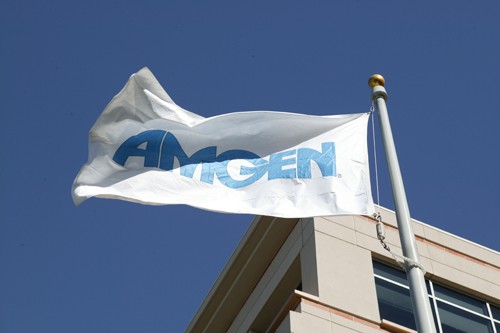
A novel therapy for skin cancer which makes use of the cell-killing activity of a virus has shown efficacy in a phase III trial, according to its developer Amgen.
The melanoma immunotherapeutic – talimogene laherparepvec (also known as OncoVex) – works by introducing a virus that selectively replicates in tumour cells, causing them to rupture. The virus is then released along with a cytokine called GM-CSF, which encourages the patient’s own immune response to attack the cancer.
Amgen acquired the drug in 2011 when it bought BioVex in a deal valued at up to $1bn, including $425m in upfront cash, and investors have been waiting eagerly for the results of the melanoma trial to see if the money was well spent.
At first glance the data seem impressive, with the trial meeting its primary objective of increasing the durable response rate (DRR) – a composite of complete or partial responses lasting for at least six months – compared to subcutaneous doses of GM-CSF.
All told, 16 per cent of patients treated with talimogene laherparepvec had a DRR, compared to just 2 per cent of the placebo group, while preliminary results on overall survival has also come out in favour of Amgen’s drug.
The mortality data is not expected to be ready until late 2013 and will likely need to show a significant benefit in favour of Amgen’s drug if it is to win approval. The company has not commented on whether it will be able to move forward with marketing applications based on the study.
“A high unmet need exists in melanoma and we believe the innovative mechanism of action of talimogene laherparepvec may offer a promising approach for these patients,” commented Sean Harper, Amgen’s head of R&D.
Melanoma accounts for less than five per cent of skin cancers but is by far the most aggressive form of the disease, accounting for 75 per cent of all skin cancer-related deaths each year.
The cancer has seen some strides forward in recent years, notably the introduction of Bristol-Myers Squibb’s Yervoy (ipilimumab) – which also acts as an immunotherapy – and Roche’s Zelboraf (vemurafenib).
Both drugs have shown robust growth since their launches in 2011, with Zelboraf bringing in 234m Swiss francs ($247m) and BMS reporting sales of $211m for Yervoy last year.




